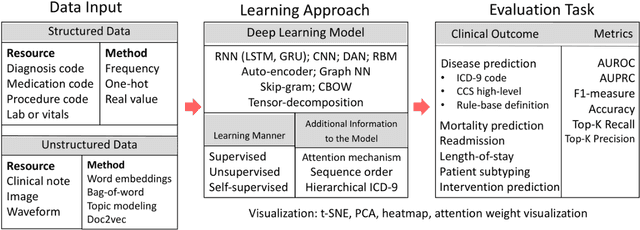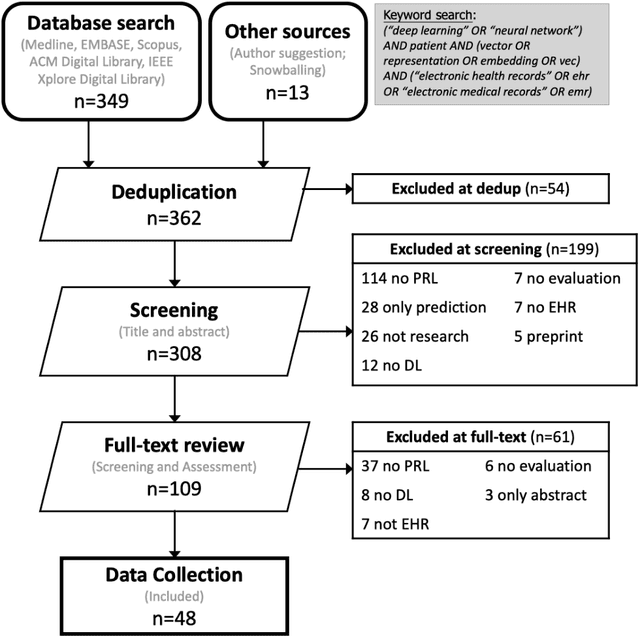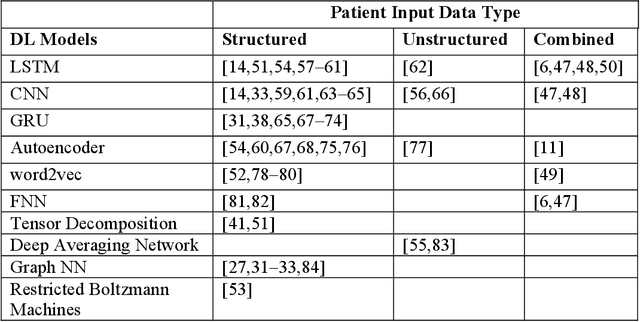Deep Representation Learning of Patient Data from Electronic Health Records (EHR): A Systematic Review
Paper and Code
Oct 06, 2020



Patient representation learning refers to learning a dense mathematical representation of a patient that encodes meaningful information from Electronic Health Records (EHRs). This is generally performed using advanced deep learning methods. This study presents a systematic review of this field and provides both qualitative and quantitative analyses from a methodological perspective. We identified studies developing patient representations from EHRs with deep learning methods from MEDLINE, EMBASE, Scopus, the Association for Computing Machinery (ACM) Digital Library, and Institute of Electrical and Electronics Engineers (IEEE) Xplore Digital Library. After screening 362 articles, 48 papers were included for a comprehensive data collection. We noticed a typical workflow starting with feeding raw data, applying deep learning models, and ending with clinical outcome predictions as evaluations of the learned representations. Specifically, learning representations from structured EHR data was dominant (36 out of 48 studies). Recurrent Neural Networks were widely applied as the deep learning architecture (LSTM: 13 studies, GRU: 11 studies). Disease prediction was the most common application and evaluation (30 studies). Benchmark datasets were mostly unavailable (28 studies) due to privacy concerns of EHR data, and code availability was assured in 20 studies. We show the importance and feasibility of learning comprehensive representations of patient EHR data through a systematic review. Advances in patient representation learning techniques will be essential for powering patient-level EHR analyses. Future work will still be devoted to leveraging the richness and potential of available EHR data. Knowledge distillation and advanced learning techniques will be exploited to assist the capability of learning patient representation further.
 Add to Chrome
Add to Chrome Add to Firefox
Add to Firefox Add to Edge
Add to Edge